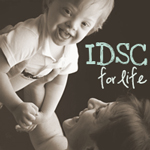There's a new speech device being tested in Europe with children who have Down syndrome. It looks very cool and promising. It would make sense that this would work, because children with DS respond very well to PROMPT therapy.
Speech Device Helps Children with Down Syndrome
A REVOLUTIONARY speech therapy technology aimed at helping children with Down’s syndrome is being rolled out to the Capital’s classrooms.
Experts at Queen Margaret University revealed teachers and learning assistants at schools across Edinburgh and the Lothians were using hi-tech techniques based on electropalatography (EPG) – where children learn to pronounce sounds with the help of visual patterns generated by a mouth palate containing dozens of electrodes.
QMU researchers have been developing EPG for 20 years but revealed they were now taking it into classrooms, with 20 pupils who have Down’s benefitting through 15-minute bursts of therapy.
They said the new approach marked a radical departure from conventional aural feedback methods, where subjects are asked to listen to sounds and repeat them, which are often less effective as children with Down’s usually respond better to visual stimuli.
Joyce Fegan, a teaching assistant at Prospect Bank Primary School, who is using EPG with 11-year-old Grace Hampson, said: “It has made a huge difference. We’ve noticed her speech has slowed down and it’s been a lot easier for her when pronouncing sounds and words.”
Researchers explained that EPG uses a palate made for each child which contains 62 electrodes monitoring exactly where the tongue makes contact with the mouth during speech.
The signals are then fed into a device that converts them into a simple pattern on a computer screen showing tongue-to-mouth contact.
The therapist – also hooked up to the device through a palate – is then able to show the correct pattern to the child for each sound, enabling them to learn the pronunciation.
“It’s been very positive,” said Ms Fegan, who has been using EPG with Grace every day over the past three months.
“Grace knows exactly how to produce sounds because she’s seeing them on a screen and she really enjoys using the palate.
Ms Fegan revealed that another P7 pupil, Niamh Savage, was also benefitting from the trial, with nine-year-old Rimni Rudden Davey also set to get on board.
Results from classroom trials will be analysed by experts at QMU, who said EPG should “significantly improve” speech production among primary school pupils with Down’s.
Dr Sara Wood, QMU speech and language therapist, said: “By targeting younger children, we are hoping to correct speech problems before they become entrenched. We hope this work will help pave the way to a much brighter future for people with Down’s.”
‘The whole experience has given her more confidence’
• GRACE Hampson, 11, a primary seven pupil at Prospect Bank, has been taking part in EPG sessions for three months as part of the QMU trial.
School staff and family members said they have already noticed an improvement in her speech.
Mum Rosemary, 49, said: “I think EPG has made her think about the sounds she’s producing much more.
“The screen makes it easier to imagine the sounds and picture them, and I think the whole experience has just given her more confidence.”

Tweet
























0 comments:
Post a Comment